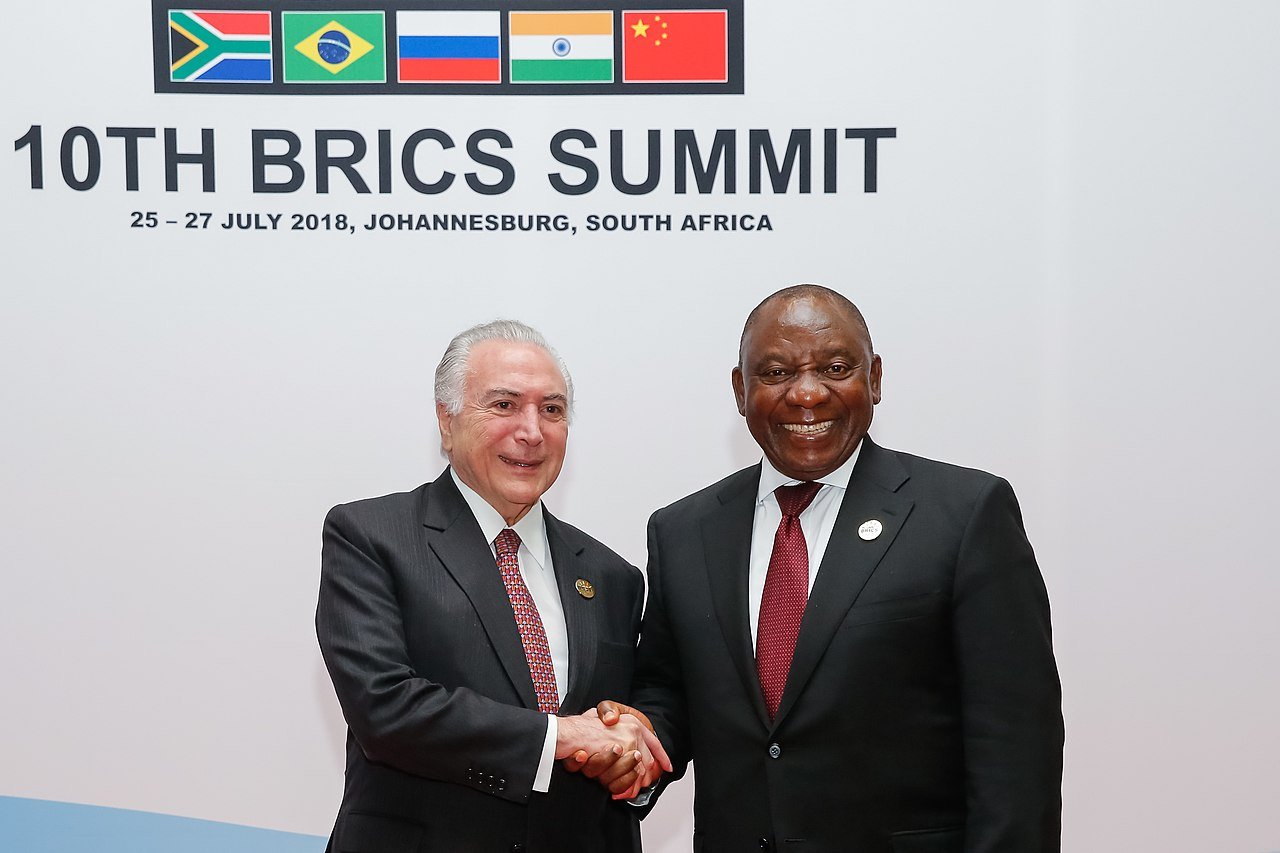VARESE, Italy. April 3rd, 2023. The first 3 months of 2023 have shown the BRICS nations rising ever faster to claim a multipolar moment in world affairs.
On March 17th, South African President Cyril Ramaphosa answered questions before Parliament during which he blamed NATO for the conflict in Ukraine, said “one side” was pushing South Africa to denounce Russia, and that his administration had been asked to mediate a potential end to the conflict.
“The war could have been avoided if NATO had heeded the warnings from amongst its own leaders and officials over the years that its eastward expansion would lead to greater, not less, instability in the region,” Ramaphosa said.
“There are those who are insisting that we should take a very adversarial stance against Russia. The approach we are going to take (instead) is… insisting that there should be dialogue,” Ramaphosa added. “Screaming and shouting is not going to bring an end to this conflict”.
Ramaphosa also said his administration does not condone the use of violence and violations of international law, in a comment presumably directed at Russia, while also saying that he doesn’t pretend to believe that his country can influence the decisions which others make, but denouncing, outrightly, one side over the other, “forcloses the role we could play”.
BRICS, standing for Brazil, Russia, India, China, and South Africa, have all condemned the use of violence, but have also agreed that a balanced mediation must be the solution—one that recognizes the interests of both sides.
The US and EU lost Africa entirely in an attempt to isolate Russia from international trade. Not one single African nation has applied the sanctions that the West has placed on Russia over the Ukraine War.
“The US exerted intense pressure on Africa to support US led sanctions,” writes prolific journalist, Ted Snider. “The US ambassador to the UN, Linda Thomas-Greenfield, told African countries that ‘if a country decides to engage with Russia, where there are sanctions, then they are breaking those sanctions’ and warned them that if they do break those sanctions ‘they stand the chance of having actions taken against them’”.
Putin recently met in Moscow with delegates from 40 separate African countries for a conference entitled “Africa in a Multipolar World,” and in June last year, Macky Sall, President of Senegal and Chairman of the African Union, visited Moscow personally.
Meanwhile, the C in BRICS, China, met with Saudi Arabia to mediate the good faith restoration of international relations with Iran; the UAE and Bahrain joined in. Saudi Arabia is on track to become a member of BRICS, as is Mexico, which has taken a stance on Ukraine similar to South Africa.
Also on the move is South Africa. A delegation from the ruling party, the African National Congress, went on a 4-day trip to Moscow last week to prepare for the 15th BRICS Summit, held in Pretoria this month. The topic of the discussion during the Moscow visit included discussions on “the recalibration of the global order to reverse the consequences of neo-colonialism […]”
In an attempt to try and win back some support from African countries, the Biden Administration has sent VP Kamala Harris to the continent on a handouts trip. Her first stop in Ghana led to her promising over $100 million in security and development assistance, and $500 million in total between Zambia, Tanzania, and Ghana. WaL
PICTURED ABOVE: President of the Brazilian Republic, Michel Temer, is received by the President of the Republic of South Africa, Cyril Ramaphosa for the 10th BRICS Summit. PC: Rogerio Melo. CC 3.0. SA
If you think the stories you’ve just read were worth a few dollars, consider donating here to our modest $500-a-year administration costs.



